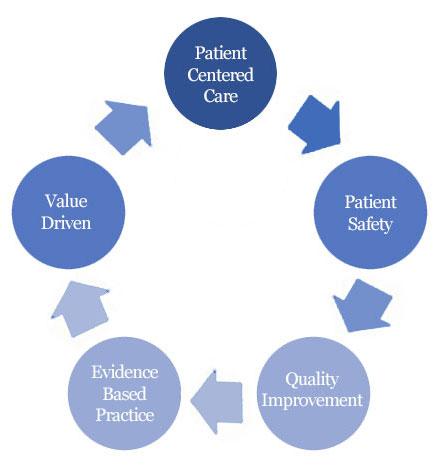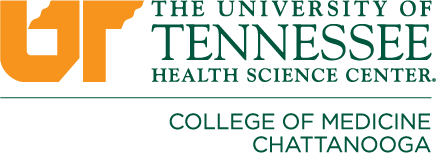Quality Improvement and Patient Safety
Quality Improvement and Patient Safety - QIPS - initiatives are important components of undergraduate and graduate medical education at The UT Health Science Center College of Medicine-Chattanooga and Erlanger.
Current residents and fellows must be involved in at least one QIPS project in order to meet our campus' institutional GME requirements and be eligible for graduation.

All physicians are responsible for enhancing quality care and insuring safety with our partners and patients. To fulfill this responsibility, we develop abilities to analyze the care we provide, understand our roles within health care teams, and play an active role in system improvement. The College of Medicine-Chattanooga Graduate Medical Education - GME - program is committed to the education and development of top-tier physicians who practice patient-centered health care, foster innovation in patient safety, and create strong inter-professional teams to promote quality, safety, and value in care delivery.
QIPS encompasses culture, awareness, and capability; all relying on measures, skills, and methods developed in clinical learning environments. The ACGME, through Common Program Requirements has established a framework for insuring that all GME programs provide residents and fellows with these skills and formative experiences.
Patients will experience excellent care in one or more aspects through these improvement opportunities.
S - Safe Care: Care that cannot harm patients or providers.
T - Timely Care: Patient care given at time of need.
E - Effective Care: Patient care designed to create best outcomes.
E - Efficient Care: Patient care that is not wasteful of effort or resources.
E - Equitable Care: Care that can be accessed by all that need it.
P - Patient-Centered Care: Care flexibly designed with patients and framed by their values.
For more information about the Erlanger and UT College of Medicine Chattanooga Quality Improvement and Patient Safety programs, please contact --
Jeffrey Bennett, MD, MBOE
Director of Quality for CLER; QIPS Day Chair
QIPS@erlanger.org
Tammy Elliott
Administrative Assistant, Pediatrics Clerkship; Administrative Coordinator, Department of Pediatrics; Administrative Assistant for
QIPS
Adam Campbell, PhD
Erlanger Senior Vice President
Quality Improvement and Patient Safety


